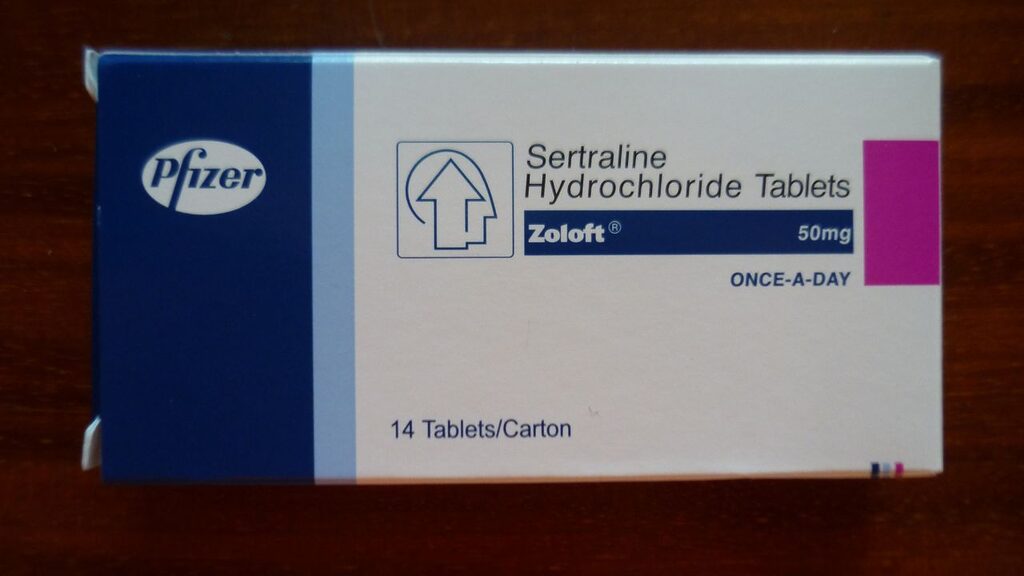Zoloft, the brand name for sertraline, is a widely prescribed antidepressant that belongs to the selective serotonin reuptake inhibitor (SSRI) class of medications. It is used to treat a range of mental health conditions, including depression, anxiety disorders, post-traumatic stress disorder (PTSD), and obsessive-compulsive disorder (OCD). While Zoloft has proven to be an effective treatment option for many individuals, it is natural to have concerns about its potential for addiction. In this article, we’ll delve into what Zoloft is, how it works, its potential side effects, and whether or not it has addictive properties.
What is Zoloft and How Does it Work?
Zoloft, an SSRI, increases serotonin levels, a neurotransmitter crucial in regulating mood, sleep, appetite, and other bodily functions. People often refer to serotonin as the “feel-good” neurotransmitter due to its ability to promote feelings of well-being and happiness. Imbalanced serotonin levels may contribute to symptoms in individuals with depression or anxiety. Zoloft prevents the reuptake of serotonin, allowing more of this neurotransmitter to remain active in the brain, thus alleviating symptoms of depression and anxiety.
Patients typically take Zoloft orally in tablet or liquid form, and healthcare providers gradually increase the dosage until the patient achieves the desired therapeutic effect. It may take several weeks before the patient realizes the full benefits of the medication, and it is essential for the patient to continue taking Zoloft as prescribed, even if they start to feel better.
Potential Side Effects of Zoloft
As with any medication, Zoloft can cause side effects. While many people tolerate the medication well, some may experience adverse reactions. Common side effects of Zoloft include:
- Nausea
- Diarrhea
- Dry mouth
- Insomnia or drowsiness
- Sexual dysfunction, such as decreased libido or difficulty achieving orgasm
- Headaches
- Dizziness
- Sweating
- Tremors
- Fatigue
Most side effects are mild and tend to subside as the body adjusts to the medication. However, in rare cases, Zoloft can cause more serious side effects, such as:
- Serotonin syndrome: A potentially life-threatening condition caused by excessive serotonin levels in the body. Symptoms include agitation, confusion, rapid heartbeat, high fever, and seizures.
- Allergic reactions: Some individuals may experience an allergic reaction to Zoloft, which can cause symptoms such as rash, itching, hives, difficulty breathing, and swelling of the face, lips, or tongue.
- Suicidal thoughts: In some cases, particularly in children, adolescents, and young adults, Zoloft may increase the risk of suicidal thoughts or behaviors, especially during the first few months of treatment.
If you experience any severe or concerning side effects while taking Zoloft, it is crucial to contact your healthcare provider immediately.
Is Zoloft Addictive?
One of the primary concerns people have about Zoloft is whether or not it can lead to addiction. Unlike substances such as alcohol, opioids, or benzodiazepines, Zoloft is not considered to be physically addictive. It does not produce the euphoric effects or intense cravings typically associated with addictive substances, and it does not lead to compulsive drug-seeking behavior.
However, some people may develop a psychological dependence on Zoloft, feeling that they cannot cope with daily life without the medication. This is more likely to occur in individuals who have been taking Zoloft for an extended period or who have a history of substance abuse or addiction.
It is important to note that when discontinuing Zoloft, it should be done gradually under the guidance of a healthcare professional. Abruptly stopping the medication can lead to discontinuation syndrome, which may cause symptoms such as:
- Flu-like symptoms, such as headache, fatigue, and muscle aches
- Dizziness or vertigo
- Irritability, anxiety, or agitation
- Insomnia or vivid dreams
- Electric shock sensations, often described as “brain zaps”
- Nausea or vomiting
These symptoms are not a sign of addiction but rather a result of the body adjusting to the absence of the medication. By tapering off Zoloft slowly, the risk of discontinuation syndrome can be minimized.
How Texas Recovery Centers Can Help
While Zoloft itself is not addictive, individuals struggling with depression, anxiety, or other mental health conditions may be more vulnerable to developing substance use disorders. Substance abuse can often be a means of self-medicating or coping with the symptoms of untreated mental health issues. At Texas Recovery Centers, we understand the complex relationship between mental health and addiction and are committed to providing comprehensive, integrated treatment that addresses both the substance use disorder and any underlying mental health conditions.
Our team of skilled professionals includes licensed therapists, psychiatrists, and addiction specialists who work together to create personalized treatment plans tailored to each individual’s unique needs. We offer a range of evidence-based therapies, including:
- Cognitive-behavioral therapy (CBT): A goal-oriented therapy that helps individuals identify and change negative thought patterns and behaviors that contribute to their substance use and mental health issues.
- Dialectical behavior therapy (DBT): A form of CBT that emphasizes the development of mindfulness, distress tolerance, emotion regulation, and interpersonal effectiveness skills.
- Medication-assisted treatment (MAT): The use of FDA-approved medications, such as buprenorphine or naltrexone, in combination with therapy to treat substance use disorders and reduce the risk of relapse.
- Individual and group therapy: Regular therapy sessions that provide a safe and supportive environment for individuals to explore their thoughts, feelings, and experiences related to their mental health and substance use.
- Family therapy: Sessions that involve the individual’s loved ones, helping to improve communication, rebuild trust, and create a strong support system for long-term recovery.
Get Help Today
At Texas Recovery Centers, we offer a continuum of care that includes detoxification, residential treatment, partial hospitalization, intensive outpatient, and outpatient programs. Our facilities provide a safe, supportive, and compassionate environment where individuals can focus on their recovery and develop the tools and skills necessary for long-term success.
If you or a loved one is struggling with addiction or a co-occurring mental health condition, don’t hesitate to reach out for help. Call Texas Recovery Centers today at 888-354-2194 to learn more about our treatment programs and take the first step towards a healthier, happier life. Our admissions team is available 24/7 to answer your questions, provide support, and guide you through the process of beginning your recovery journey. Remember, seeking help is a sign of strength, not weakness, and with the right support and treatment, lasting recovery is possible.













